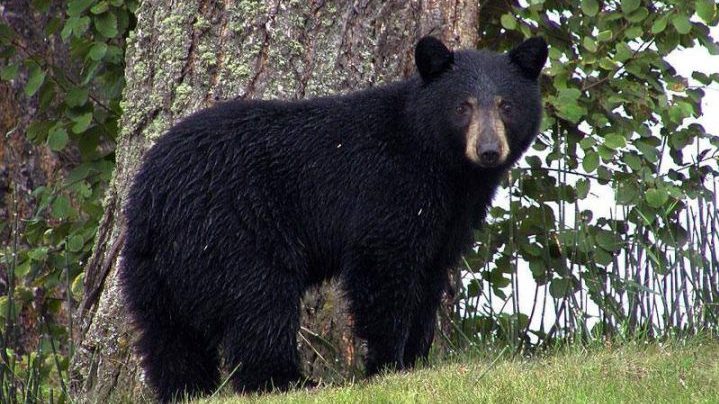With winter officially in the rearview mirror and mild temperatures returning to the Maritimes, Nova Scotia’s Department of Lands and Forestry is offering up tips on how you can avoid having unwanted guests in your backyard.

Bob Petrie, the province’s director of wildlife, says that with spring comes the return of bears, foxes, deer, coyotes, racoons and other wild animals.
“Seeing animals in the wild can be a wonderful experience, but it is also common to see wildlife in our communities, and that can become a nuisance and possibly a risk to people and pets,” Petrie said in a statement. “To avoid backyard encounters … people should reduce food sources.”
READ MORE: Rare feathered visitor draws onlookers to Brookfield, N.S.
That means reducing the amount of food left out in bird feeders, as there should be enough feed for all the birds during the spring months.
“By not feeding at that time, you end up with fewer visitors, who might end up staying and taking up residence, having young and staying for the summer,” said wildlife biologist Mike Boudreau.
WATCH: How to reduce human-wildlife conflict

Residents in every region of Nova Scotia are at risk of having wildlife enter their properties. Halifax, for example, has a large population of racoons.
Boudreau says it’s all about reducing food odours from compost bins, garbage containers and barbecues around you because once animals find a food source, they’ll keep coming back.
“For a compost bin, even though the food waste is gone, the smell still stays so you have to go over and above to clean that bin out, probably more than what most people would have regularly,” said Boudreau.
“If they did that, the next time the bear came back, he’s not going to waste his time. He’s going to move on to something else that has food available.”
Here are some more tips for keeping wildlife away:
- Store green compost bins and garbage containers in a shed until the morning of pickup
- Turn garden compost piles often and add lime to reduce the odour
- Freeze odorous food waste, such as lobster shells and fish, and put them in the compost bin on collection day
- Avoid using bird feeders from April to October
- Burn off barbecue grills at high temperatures after every use and clean them often
- Keep pet food bowls indoors
- Pick fruit from trees as soon as it ripens
READ MORE: ‘Very smart’ bear cubs try to steal Nanaimo woman’s Christmas cookies
It’s also suggested that residents limit the places that could make attractive dens for wildlife by blocking access points under doorsteps, sheds and attics.
For more information about wildlife damaging property or threatening their safety, click here.




Comments